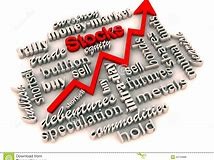The Changing Landscape of 2018
- Speed Financial Solutions

- Aug 27, 2018
- 5 min read
My inspiration this time has come from reading many different analytical reports and ‘standing on the balcony’ in terms of making sense of what’s really going on in the global economy, including the impact of BREXIT to date.
Realistically, we need to look much further back than the last couple of years, to before the Brexit vote … in fact, as far back as the burst of the tech bubble in 2000. Anything other than that would be an attempt to create a ‘micro-view’ of an ever-changing much larger landscape!
We’ve seen some excellent investment growth … so what next? Will there be a crash like 2000 and 2007? Despite opinions there are actually almost no similarities between now and then. UK companies have reduced debt significantly and now tend to have strong balance sheets. The UK has low unemployment, low inflation and record low interest rates. Since the global financial crisis, UK Gross Domestic Product (GDP) has been growing by just over 2% pa and we are into the 34th quarter of recovery. The last cycle was over 60 quarters so we are probably only half-way through a recovery cycle.
The only similarity with previous crashes is an increase in mergers and acquisitions (M&As). The last big spikes in M&As were in 2000 and 2007 ahead of the burst of the dotcom bubble and the financial crisis, and despite scaremongers claiming the demise of Britain post Brexit, company valuations are high; so where is the value for acquirers? Well, Borrowing is cheap so companies can take on more debt to finance deals. Acquisition of smaller companies is favourable as they are more likely to achieve quicker earnings results due to their ability to innovate and change, with larger acquisitions requiring much more patience and a long term view to allow for slower integration. However, companies tend to overpay for acquisitions and this creates nervousness, resulting in comparisons being drawn between now and the previous points in history. The collapse of major players like Toys R Us and Maplin in Spring this year has also created nervousness among investors.
So what other factors are affecting 2018?
Let’s consider the FTSE 100, only 30% of earnings originate from the UK, the remainder comes from overseas, with oil and commodities holding more than 20% of the index (BP and Royal Dutch Shell are two of the largest stocks in the FTSE 100), so the increase in oil price in the first quarter of 2018 has contributed to the growth of the FTSE 100 this year. UK stocks are still trading at near-record highs.
Online shopping has increased significantly in the retail clothing sector (+17.2%) whereas online grocery sales increased by just 1% (Retail Gazette and UK Fashion Online Market Report 2017). This tells us there is a shift in the way people shop and spend money, with consumers also spending more on leisure, including cinema, shows and eating out than they are on products.
Overseas investment into UK property has also been popular, with 35% of residential property going to overseas buyers (this matches the five year record set in 2017). The weak pound is thought to be behind this increase, a home that would have cost £1m before Brexit in 2016, now costs £885,450 due to sterling’s depreciation, making it 11% cheaper for an EU buyer to buy a home in the UK now than it was in the first half of 2016.
So what does all this information tell us when it comes to investing?
Nobody knows the outcome of Brexit (despite claims to the contrary!). Picking the right themes, geographical allocation and ensuring diversification will ensure that your investment remains robust even through market corrections. When we get a definitive answer to Brexit there will be massive opportunities, so it’s important also to maintain liquidity, ensuring the ability to move quickly as opportunities arise. We currently have a backdrop of synchronised global growth and low interest rates in a world where no one likes bonds and cash. Overhanging political worries such as the trade tariffs being championed by US president Donald Trump is also creating wobbles and uncertainty.
So which sectors/themes are performing best?
When we employ fund managers to actively manage a fund we are hoping that he/she will outperform the index with which the fund is aligned. This is becoming increasingly difficult for fund managers, but there are some that stand out.

Source: FE Analytics
The table above shows how the performance of the average fund in each sector stacks up to the index. As can be seen, the IA UK Smaller Companies sector is the clear winner. Global equities tend to be a difficult arena for active funds to outperform in, with the global equity income sector coming bottom. However, I was pleased to read that one of the funds we regularly include in our client portfolios, the Guinness Global Equity Income fund, was the only fund to beat the index. It made 6.9% over the seven months in question. The other 55 funds in the IA Global Equity Income sector were lagging the MSCI World over the period.
But actively managed funds are only part of a well-diversified portfolio.
It’s not all about the return!
Of course, great returns like the fund above will provide a boost to a portfolio. Would we hold just a handful of investment funds that demonstrate great past performance? No, certainly not. We undertake a strict process of asset allocation on behalf of our clients based on our discussion with them and how they feel about the level of risk they are prepared to take together with the need to maintain liquidity and provide income where necessary. It is important to us to know that our clients understand how their money is invested.
Speed Financial Solutions are a highly qualified financial services provider on the Costa del Sol looking after clients throughout Spain and the UK. We provide a discreet and comprehensive service to individuals, and our service is tailored to your needs taking advantage of tactical opportunities as they arise in respect of your investment planning. We seek innovative solutions for our clients and employ our skills, based on many years of experience, to apply tax legislation to our clients’ advantage. Our relationship with clients is built on trust and mutual respect. We are accessible and approachable, and ready to answer your questions, giving you the confidence you want when dealing with a sensitive issue such as discussing your pensions, investments and savings.
Our Principal, Andrea Speed, is a Fellow of the Personal Finance Society (PFS) which is the professional body for the financial planning community. The PFS is part of the Chartered Insurance Institute (CII), which is the world’s largest professional body for insurance and financial services in the world.
Fellowship is the highest qualification awarded by the CII and is universally regarded as the premier qualification. It is a major achievement in the financial industry and demonstrates the acquisition of skills and knowledge at the highest of levels.
Along with a Fellowship, Andrea is a CII Chartered Financial Planner specialising in Taxation and Trusts.
Please take a look at our website – www.speedfinancialsolutions.com for further information and contact us (Tel 951 315 271 or 951 318 529) – we are happy to discuss your own situation in more detail. One of our advisers would be pleased to spend some time with you either in your home or at our office to review your current savings, investments and pensions, so do call to make an appointment. Our Financial Review is completely free of charge and without obligation. Follow us on Facebook for regular updates.
Andrea J Speed FPFS (DM), M.A.
Principal, Fellow and Chartered Financial Planner
Speed Financial Solutions
28 August 2018
Please note that the above does not constitute advice to invest – you should seek independent financial advice before investing.














Comments